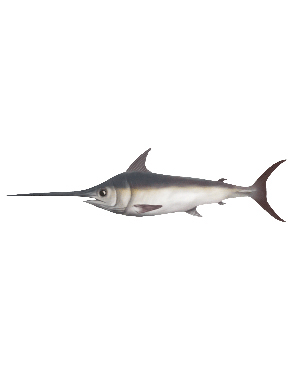How This Helps
Instructions
Science and Research
Swordfish Nutrition Facts
Swordfish health benefits
Among the health benefits of swordfish is that it functions as an outstanding source of protein. Each 106-gram swordfish steak includes 27 grams of protein. The body uses protein to make enzymes, transport oxygen, and to maintain healthy tissues such as the muscles, hair, and skin.
Swordfish comprise a healthy amount of selenium, with 93 percent of the daily recommendation for every 106 grams. Selenium can improve bone health by incorporating strength and durability. The vitamin also strengthens the teeth, hair, and nails. Additionally, this essential nutrient is a potent antioxidant, which eliminates free radicals. Phosphorus and zinc make massive donations to helping build strong bones and a healthy bone matrix.
Another advantage of swordfish is that it has a generous amount of omega-3 fatty acid content. Omega-3 fatty acids with anti-inflammatory properties may decrease blood pressure. Keeping a steady blood pressure can significantly boost heart health by lowering the strain on the cardiovascular system. This improvement has the potential to reduce the probability of heart attacks, strokes, and atherosclerosis.
Swordfish supplies a significant amount of eicosapentaenoic acid (EPA) and docosahexaenoic acid (DHA). EPA and DHA are omega-3 fats found in fatty fish and shellfish. The Department of Health & Human Services recommends a diet with at least 8 ounces a week of fish that may reduce one’s risk of coronary death.
The swordfish is an authoritative source of B-vitamin complex elements such as vitamins B3 (niacin) and B12. Vitamin B12 aids in energy production, helps with blood formation and DNA synthesis, and in the creation of fatty material around the brain cells, known as myelin. Niacin is known to increase a person’s “good” cholesterol and decrease the risk of cardiovascular issues.
Swordfish can help folks have a serene sleep and decrease the incidence of sleep disorders, like sleeplessness, as it has a high content of magnesium. Magnesium is a mineral that’s directly related to improving the properties of sleep like quality, length, and calmness.
Precautions
Swordfish are among the species of fish, which can be high in mercury that can lead to brain damage in fetuses and small babies. This fact renders swordfish as a fish not to eat while pregnant or lactating. It is best for children also to avoid eating swordfish for this reason.







